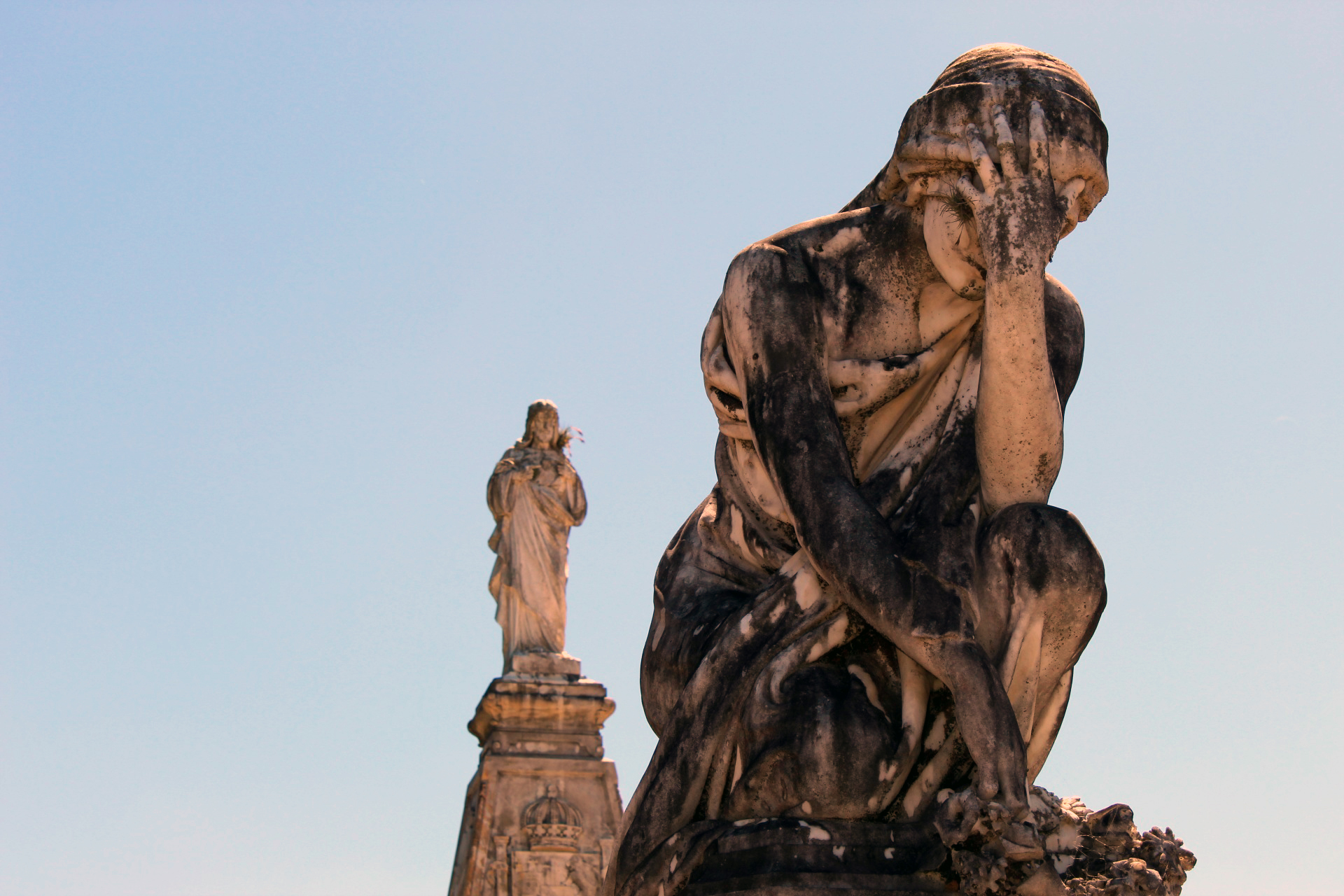Word has it, the ancient Indian radical and spiritual master known as the Buddha once asked his students, “If a person is struck by an arrow, is it painful?”
“It is,” they answered.
He then asked, “If the person is struck by a second arrow, is that even more painful?”
“It is,” they answered.
“In life, we cannot always control the first arrow. However, the second arrow is our reaction to the first. And with this second arrow comes the possibility of choice,” he said.
What the Buddha was getting at is that there’s a difference between pain and suffering.
Pain is the obvious stuff, getting fired, wrecking your car, waking up with a hangover. It’s the not so obvious stuff for some of us, being pulled over by a cop because of the color of your skin, getting catcalled while walking down the street, opening the envelope of your student loan bill.
It’s also something we feel inside, emotionally, when life doesn’t live up to our expectations.
“The first arrow is our human conditioning to cling to comfort and pleasure and to react with anger or fear to unpleasant experience,” writes meditation teacher Tara Brach, in her book True Refuge.
We live most of our days in a “trance,” Brach calls it, wishing that life, our job, our boyfriend, this country, were different.
All it takes is a few minutes of watching where our mind goes during meditation to see that we’re often somewhere other than the present moment. We’re fantasizing about a crush, and then zing…we’re worrying about asking our boss for a raise.
This trance is painful because it holds us back from being present. When our mind is in the past or future, our body clenches up and we miss out on the very thing we’re searching for: the deep connection we feel when we’re fully open and alive, not holding back.
But pain is inevitable. Everyone experiences some level of trauma as a kid, which shapes our emotional reactions.
And underneath all the stories about greatness and dreams, this society is exceptionally violent, overworked, uncared for, overmedicated, unfulfilled, overpoliced, underpaid, and barreling towards climate disaster. No wonder we want things to be different.
What isn’t inevitable is suffering, caused by the story about ourselves that we add on top of the pain — to explain it, to get away from it, to indulge in it.
A colleague recently emailed me criticizing how I had been communicating with them about a project we were collaborating on. It wasn’t just a miscommunication — they described my behavior in a way that was extremely different from my experience.
I felt angry, then sad, and then, most painful, a deep sense of doubt. My mind filled with stories. Do I have any idea how I come off to others? Are all my friends just pretending to like me? I’m too busy always trying to be “nice” rather than honest.
Notice what’s at the center of these stories: me, a “self,” an ego. When this “self” is at the center of the story, we suffer.
Why? Because telling stories about a “self” turns us into a frozen, unchangeable character in a movie. It separates us from the everchanging flow of life, from the fact that we’re always learning and growing. It disconnects us from the connection we seek. We blame ourselves because we are just the way we are — broken, unworthy of belonging, unworthy of love.
I spent two days firing more arrows into a fresh wound by blaming my “self” for what happened.
That’s not to say I wasn’t to blame. We must take responsibility for our role in the pain, especially if we hurt other people.
But beating myself up didn’t help anyone — as the Buddha said, it was even more painful. For two days I felt as lonely as I did in my early 20s, the loneliest time of my life.
How do we stop the suffering? By going to the body.
When you notice that you’re beating yourself up, when you’re lost in a story of self-blame, ask yourself, “Where and how is this showing up in my body?”
Maybe it’s a clench in your stomach or a dull pain in your chest. Feel the raw sensations that accompany the story. Give them time and space, allowing them to just be as they are.
If the feelings are too overwhelming, put your attention on the movement of your breath or the sounds around you. Many of us carry untreated trauma that needs time and professional therapy to carefully unpack.
Usually, through being mindful of what’s going on in the body, we eventually see the stories for what they are. Then we can investigate where they came from so we can notice them even quicker next time they appear.
Talking with a close friend or therapist can help. Learning about capitalism, patriarchy, and white supremacy can help us see how those in power turn us against each other.
The Buddha’s whole jam was enlightenment, the end of suffering. I don’t think that’s a healthy expectation.
But learning the difference between pain and suffering can give us, as he told his students, “the possibility of choice,” also known as freedom.
Ready to get serious about meditation?
Sign up for my weekly email on meditation and bringing mindfulness to the stuff that matters most — work, relationships, and politics.
Listen to the podcast version with more content
My podcast, Meditation for the Masses, is mindfulness for the 99 percent. Listen to it on Apple Podcasts, Google Play, and everywhere podcasts are available. Stream this episode below.
Podcast: Play in new window | Download
Subscribe: Apple Podcasts | RSS | More
